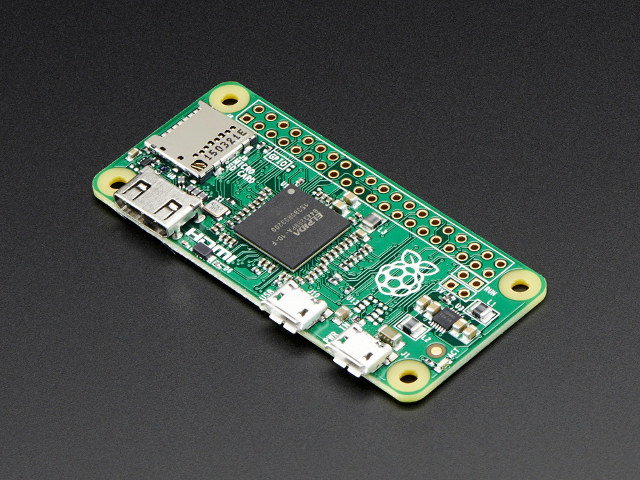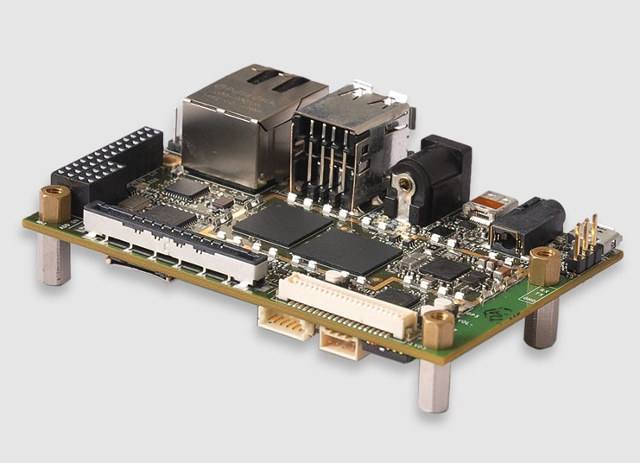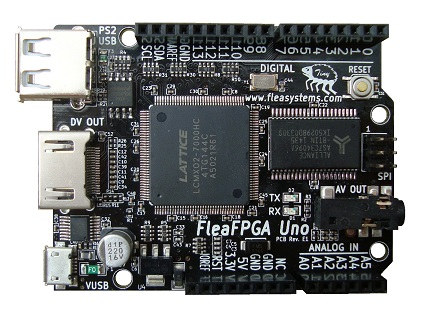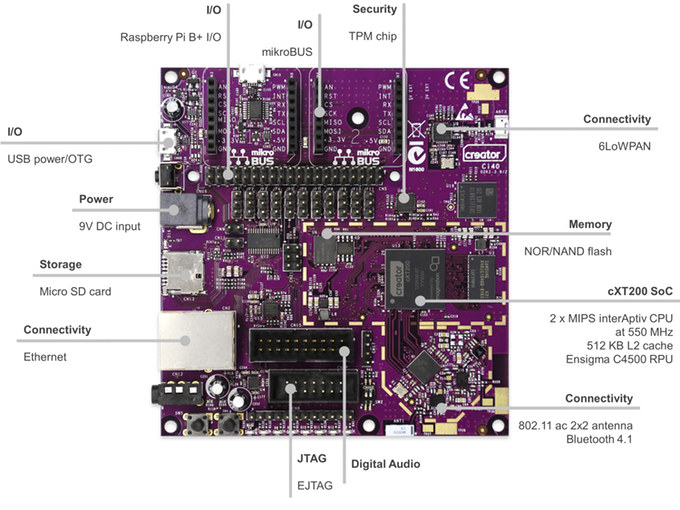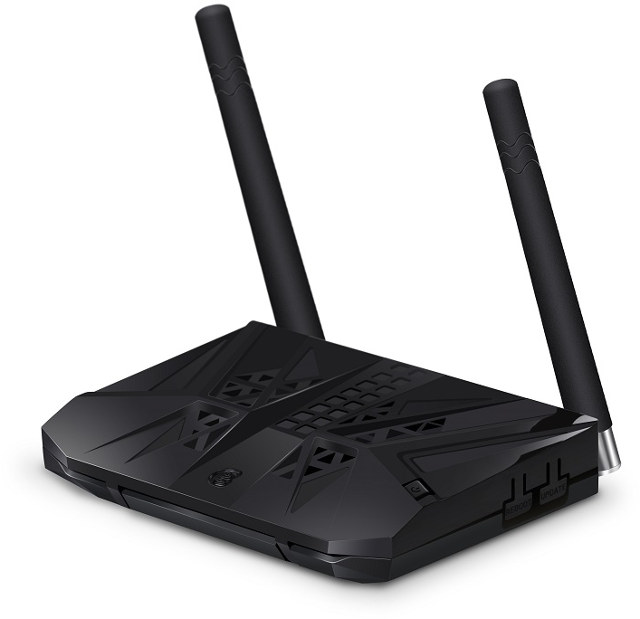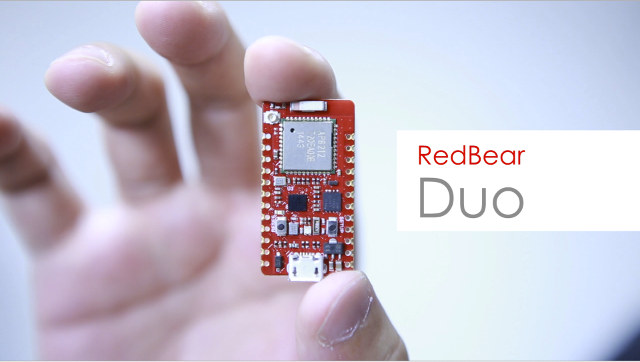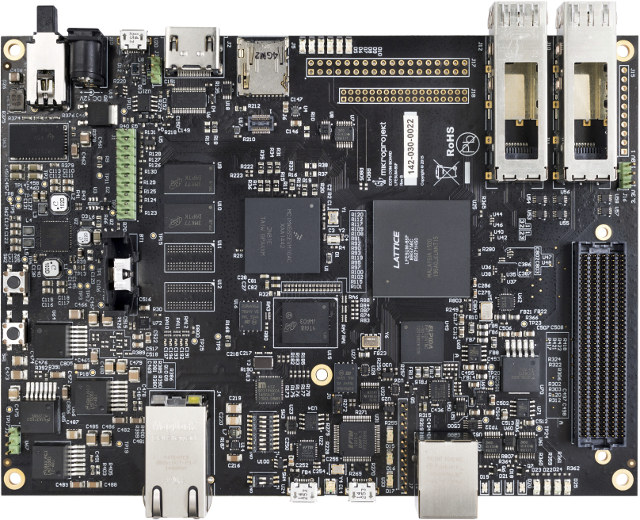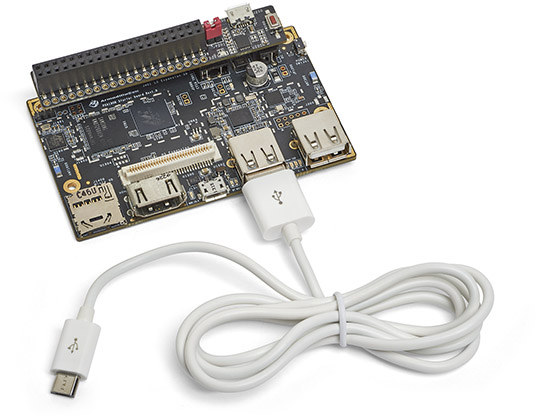The Raspberry Pi board had some serious competition price-wise with products such as Orange Pi PC, NanoPi, or even C.H.I.P, but the Raspberry Pi foundation has lowered the price barrier even further with the Raspberry Pi Zero board, based on the same processor as the original Raspberry Pi (model 1) boards but clocked at a higher speed, and in a much smaller form factor, and launching at an unbeatable price: $5. Raspberry Pi Zero specifications: Processor – Broadcomm BCM2835 ARM11 processor @ 1GHz with VideoCore IV GPU System – 512MB RAM Storage – microSD slot Video Output – mini HDMI port and composite video (via 2 unpopulated pins) USB – 2x micro USB OTG ports for data and power Expansion – 40-pin through-holes Power Supply – 5V via micro USB port Power Consumption – 0.5-0.7W (100-140mA at 5.09V) according to Raspi.TV Dimensions – 65mm x 30mm x 5mm The board […]
Inforce 6309 micro SBC is Software Compatible with DragonBoard 410c Board, Includes an Ethernet Port
I’ve recently written a review of DragonBoard 410c with Android, one of the first board part of Linaro’s 96Boards initiative that’s supposed to get Android and Debian distributions with recent Linux kernel & U-Boot, together with full source code. Inforce Computing has now launched Inforce 6309 micro Single Board Computer (SBC) with the same footprint, albeit different connectors’ placements, and software compatible with DragonBoard 410c development board powered by the same Qualcomm Snapdragon 410 processor. The board targets applications such as industrial automation, “sophisticated” IoE devices, medical devices, augmented reality computing, and robotics and drones. Inforce 6309 micro single board computer specifications: SoC- Qualcomm Snapdragon 410 (APQ8016) quad-core ARM CortexA53 @ 1.2 GHz with Adreno 306 GPU and Hexagon QDSP6 @ 700 MHz System Memory – 1GB LPDDR3 @ 533MHz, Single-channel 32-bit (4.2GBps) Storage – 8GB eMMC flash (eMCP package with RAM) + micro SD slot Video Output / Display […]
FleaFPGA Uno Board Combines a Lattice FPGA, Arduino UNO Form Factor, HDMI Output, and an ESP8266 WiFi Module
FPGA board with Arduino headers are not exactly a rarity, for example Digilent ARTY in a larger form factor, and some developers have designed FPGA boards using Arduino Mega form factor, such as Papilio DUO and Arduissimo. But FleaFPGA Uno is the first Arduino Uno like FPGA board I’ve seen and it includes HDMI output, one USB host port, as well as an optional WiFi module based on ESP8266. FleaFPGA Uno specifications: FPGA – Lattice Semi MachXO2-7000HC with 6864 LUTs, 256 Kbits flash, and 240+54 Kbits SRAM System memory – 512KB 10nsec User SRAM. Storage – 16MB User Flash ROM. Video Output 24-bit Digital Video out via HDMI port up to 800×600 Composite NTSC video via 3.5 mm jack Audio – Stereo audio out via 3.5mm jack. USB 1x micro USB port for power and slave serial port 1x USB 1.1 host port (PS/2 port) On-board USB JTAG for easy […]
MIPS Creator Ci40 Development Board Powered by cXT200 SoC Launched for $53 on Kickstarter
Last year, Imagination Technologies launched their first community development board with MIPS Creator CI20 powered by Ingenic JZ4780 dual core MIPS processor running both Android and Linux, and now supported by various projects. The company has been teasing about its MIPS Creatort Ci40 for a few weeks, and was already announced as the MIPS platform of choice for Google Brillo operating system, but the board has now officially been launched via a Kickstarter campaign where you can get the board for $53, as well as some add-on boards. But instead of using a processor from one of their partner, Imagination just designed their own MIPS interAptiv SoC for the board. Creator Ci40 board specifications: SoC – Imagination Technologies Creator cXT200 with 2x MIPS interAptiv core @ 550MHz, 512KB L2 cache, and an Ensigma C4500 RPU (for 802.11ac/ BT 4.1 LE) System Memory – 256 MB DDR3 Storage – 512 MB […]
GeekBox is a Hackable Android and Linux TV Box Powered by Rockchip RK3368 SoC
There are many Android TV boxes on the market based on Rockchip RK3368 processor, while I’m not aware of any development board based on the latest Rockchip octa-core processor, and Linux support is basically inexistent. One device may fill both gaps: GeekBox. This TV box can run both Android and Ubuntu Linux, while it’s easily disassembled to access expansion headers. The hardware specifications are a little higher-end than most Rockchip RK3368 TV boxes we’ve seen so far: SoC – Rockchip RK3368 octa core Cortex A53 processor @ 1.2 GHz with PowerVR G6110 GPU System Memory – 2GB LPDDR3@1600Mbps Storage – 16GB Samsung eMMC v5.0 flash + micro SD slot Video Output / Display I/F HDMI 2.0 up to 4K @ 60Hz with CEC support Display + touchscreen headers Audio Output – HDMI Connectivity – Gigabit Ethernet, 802.11 a/b/g/n + 802.11ac 2×2 MIMO @ 867 Mbps (AP6354 module), Bluetooth 4.1 USB […]
RedBear Duo is a Breadboard-friendly Wi-Fi + BLE IoT Board Based on Ampak AP6212 Module (Crowdfunding)
I’ve taken apart lots of TV boxes and together with Realtek, Ampak are by far the most popular wireless modules to provide WiFi and Bluetooth connectivity in those devices. One startup decided to use Ampak AP6212 module, also found in NanoPi 2 board, to create a breadboard-friendly IoT board with Bluetooth 4.0 and 802.11b/g/n connectivity. Redboard Duo has been designed with the same form factor as many other IoT boards such as NodeMCU or Spark Photon, and features the following: Ampak AP6212 module: STMicroelectronics STM32F205 ARM Cortex-M3 @120MHz, 128 KB SRAM and 1MB Flash Broadcom BCM43438 Wi-Fi 802.11n (2.4GHz only) + Bluetooth 4.1 (Dual Mode) combo chip Storage – On-board 16 Mbit (2 MB) SPI Flash Integrated chip antenna with the option to connect external antenna Expansion – Headers with 18 I/O pins Misc – RGB status LED Dimensions – 20.5mm x 39mm The company also made a small baseboard called RBLink with […]
Kondor AX FPGA + ARM Networking Board Targets Base Stations, IoT Gateways and IP Cameras
Mikro Project, a company based in Zagreb, Croatia, has recently introduced Kondor AX “Advanced System Development Board” combining Freescale i.MX6Solo processor with Lattice ECP5 FPGA, and targeting “low power applications at the network edge including HetNet (Heterogeneous Networks), Small Cells, Industrial IoT gateways and IP Cameras.” Kondor AX development board specifications: Category Lattice ECP5 LFE5UM-85F-BG756 FPGA Freescale i.MX6 Solo SoC Description 84.000 LUTs 207 Block RAMs 156 18×18 Multipliers 365 IO pins 4 SERDES channels (In/out) 400 MHz LPDDR3 Memory Support 4 PLLs, 4 DLLs ARM Cortex A9 @ 1 GHz 512 KB L2 cache GPU 3D – Vivante GC880 Video Decode: 1080p30 + D1 Video Encode: 1080p30 H.264 BP/ Dual 720p encode Programming options On-board USB JTAG interface 10-pin JTAG header Using i.MX6 processor Memory & Storage 512MB LPDDR3-1600 800 MHz Clock Rate 1x 32-bit channel 512 MB 32-bit DDR3 64Mbit SPI Flash 8GB eMMC Micro SD Card Connectivity […]
AndroMeda Box Edge Brillo Starter Board Features Marvell IAP140 Processor, 96Boards Form Factor
Google announced Brillo, a new operating system based on Android and targeting the Internet of things, at the end of October. The company also disclosed that ARM, MIPS and x86 architectures were supported via respectively TechNexion Pico-i.MX6UL system-on-module and PICO-DWARF baseboard, MIPS Creator CI-40 board, and Intel Edison development board. A few days later, Marvell announced Andromeda Box, an IoT platform supporting Brillo and Weave, based on IAP140, a quad-core ARM Cortex A53 application processor for the “Edge” version, and ARMADA 385 dual core Cortex A9 processor for the “Connect” version, but without the full details. AndroidMeda Box Edge is now listed on Solid Run and Arrow websites, where it is sold for $74.99. If the board looks familiar, it’s because it clearly follows 96Boards form factor, but instead of officially being supported by Linaro, it has been designed specifically as a Google’s Brillo development platform with the following specifications: […]


